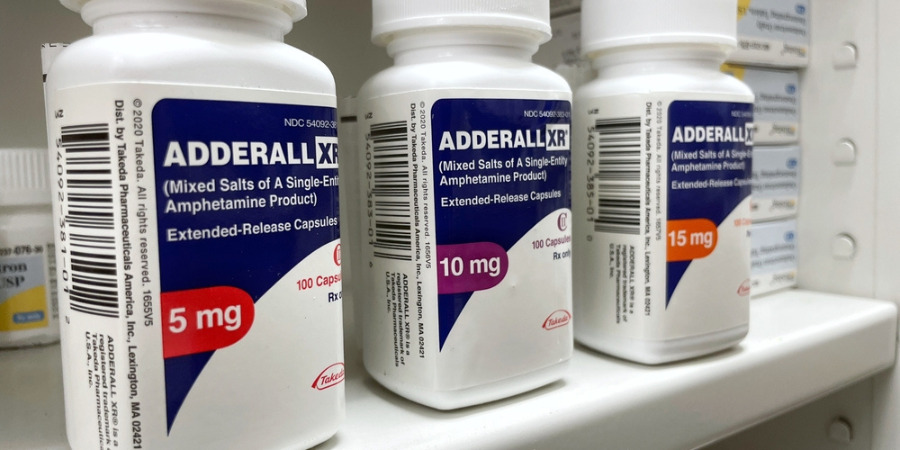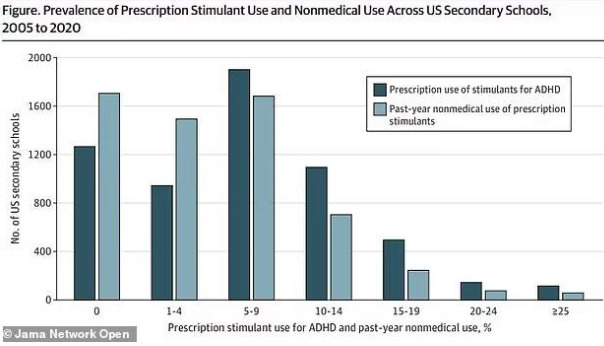
Written by:

Medically Reviewed by:
Last Updated:
February 14th, 2025
Adderall Addiction
What is Adderall?
Adderall, the brand name for a combination of dextroamphetamine and amphetamine, is a prescription medication used to treat attention deficit hyperactivity disorder (ADHD) and narcolepsy. It helps improve focus, attention and impulse control in people with ADHD when prescribed and managed by a doctor. Because of this, Adderall is widely used to help individuals manage symptoms and enhance daily functioning.
However, Adderall is not legally available in the UK. Instead, alternatives like Ritalin are prescribed as the UK enforces stricter regulations on amphetamine-based medications. Despite this, it is still possible to obtain Adderall through illegal means, as it is accessible via black market sources.
Do people without ADHD abuse Adderall?
For people with ADHD, the drug works by balancing neurotransmitters in the brain, making it highly effective and usually not something they would abuse. However, for individuals without ADHD, Adderall can have different effects, making it more prone to abuse for various reasons.
- Cognitive enhancement: One of the main reasons people without ADHD misuse Adderall is its perceived ability to enhance cognitive functions. These individuals often seek sharper focus, heightened concentration and improved memory. It’s particularly popular among students and professionals who believe that Adderall will help them study longer, perform better on exams or boost productivity at work.
- Increased energy and stamina: Adderall can increase energy levels and help individuals stay awake for extended periods, appealing to people pulling all-nighters or demanding work schedules. This stimulant effect makes it attractive to those trying to combat fatigue, allowing them to push through deadlines or high-pressure situations.
- Weight loss: Adderall is known to suppress appetite, which can lead to weight loss. This effect may encourage misuse, especially in people looking for a quick solution to manage their weight. The drug’s stimulant properties can create a heightened state of activity, leading to calorie expenditure while simultaneously reducing food intake.
- Euphoria and mood elevation: Some people take Adderall for the feelings of euphoria and well-being it can induce, especially at higher doses. For those without ADHD, the brain’s response to the increased dopamine levels creates a pleasurable, rewarding sensation, which can become addictive.
- Perceived safety: Since Adderall is a prescription drug, many people may underestimate the risks of abuse, believing it to be a “safe” alternative compared to illegal stimulants. This misconception leads some to misuse the drug without fully understanding the potential for dependency or other health risks.
Adderall abuse is a growing concern worldwide, especially due to its frequent use for reasons beyond its medical purpose.
Research focusing on U.S. secondary schools from 2005 to 2020 sheds light on this issue, revealing a troubling connection between prescription rates for ADHD and the nonmedical use of stimulant medications like Adderall.
The data shows that while most stimulant use is medically prescribed, particularly in schools where 5-9% of students are on medications like Adderall, there is a noticeable trend of misuse. In schools where prescription rates rise to 10-14%, the likelihood of nonmedical use increases significantly. This indicates that greater access to these medications can create more opportunities for abuse.
What stands out is that even in schools with 5-9% of students prescribed stimulants, there is a notable overlap between medical use and nonmedical use. As prescriptions rise, the potential for misuse grows, likely driven by the increased availability of the drug among peers.
Is Adderall addictive?
Figuring out whether Adderall is addictive can be challenging, especially if you’re taking it for ADHD or for non-ADHD reasons. Understanding the differences in how it affects people is key to knowing the risks.
Is Adderall addictive for people with ADHD?
For individuals with ADHD, the risk of addiction to Adderall is generally low when it’s taken as prescribed. When used under a doctor’s guidance, it typically doesn’t cause the euphoric effects associated with addiction. Medical observation ensures it remains an effective tool for managing ADHD symptoms without leading to dependency.
Is Adderall addictive for people without ADHD?
Adderall can be addictive for individuals who don’t have ADHD. Without ADHD, Adderall acts as a stimulant, creating effects like increased focus, energy and a sense of euphoria, which can lead to recreational use and, eventually, addiction. Misuse of Adderall in this way increases the likelihood of dependency and other harmful outcomes.
Adderall can be addictive, especially if misused. However, those with ADHD who take it as prescribed shouldn’t be scared into avoiding the medication. The real risk comes from using it recreationally or off-label, not from using it to treat ADHD symptoms under a doctor’s care.
What are the signs of Adderall addiction?
It’s important to know the signs of Adderall addiction so that if you notice them in yourself or those close to you, you can seek help right away. Recognising these signs early on is crucial, as Adderall addiction can quickly escalate, affecting a person’s physical, mental and emotional well-being. The following are key signs to watch for:
- Increased tolerance: needing to take more Adderall to achieve the same effects.
- Taking larger doses: than prescribed or using the drug without a prescription.
- Doctor shopping: seeking prescriptions from multiple doctors (common in countries with privatised healthcare services).
- Obsessing over obtaining the drug: or making it a central focus of daily life.
- Neglecting responsibilities: at work, school or in relationships due to Adderall use.
- Using Adderall to stay awake or for nonmedical reasons: like improving performance or concentration.
- Withdrawal symptoms: such as fatigue, depression and sleep issues when stopping or reducing use.
- Continuing to use the drug despite negative consequences: like health issues or problems at home.
If you notice these signs in yourself or someone else, it’s essential to seek professional help before the addiction worsens.
Can Liberty House help me with Adderall addiction?
At Liberty House, we understand the challenges that come with Adderall addiction and our dedicated Adderall addiction treatment programme is designed to offer the support and care needed for recovery.
Our experienced team provides 24/7 medical assistance during detox to ensure a safe and comfortable process, followed by comprehensive therapy to address both the physical and psychological aspects of addiction. Through traditional therapies such as DBT and group counselling, along with holistic therapies like yoga and art, we help individuals build healthier coping mechanisms and reclaim control of their lives.
Aftercare services are also available to provide continued support long after rehab, ensuring a stable and lasting recovery.
If you or someone you love is struggling with Adderall addiction, reach out to Liberty House today. Help is just a step away.
Frequently Asked Questions
(Click here to see works cited)
- Waldersee, Victoria. “One in Seven GCSE Students Taking Black Market ‘Study Drugs.’” YouGov, YouGov, 23 Apr. 2019, yougov.co.uk/health/articles/22726-one-seven-gcse-students-taking-black-market-study-.
- McCabe SE, Schulenberg JE, Wilens TE, Schepis TS, McCabe VV, Veliz PT. Prescription Stimulant Medical and Nonmedical Use Among US Secondary School Students, 2005 to 2020. JAMA Netw Open. 2023;6(4):e238707. doi:10.1001/jamanetworkopen.2023.8707
- Chang Z, Lichtenstein P, Halldner L, D’Onofrio B, Serlachius E, Fazel S, Långström N, Larsson H. Stimulant ADHD medication and risk for substance abuse. J Child Psychol Psychiatry. 2014 Aug;55(8):878-85. doi: 10.1111/jcpp.12164. Epub 2013 Oct 25. PMID: 25158998; PMCID: PMC4147667.
- Lakhan SE, Kirchgessner A. Prescription stimulants in individuals with and without attention deficit hyperactivity disorder: misuse, cognitive impact and adverse effects. Brain Behav. 2012 Sep;2(5):661-77. doi: 10.1002/brb3.78. Epub 2012 Jul 23. PMID: 23139911; PMCID: PMC3489818.








